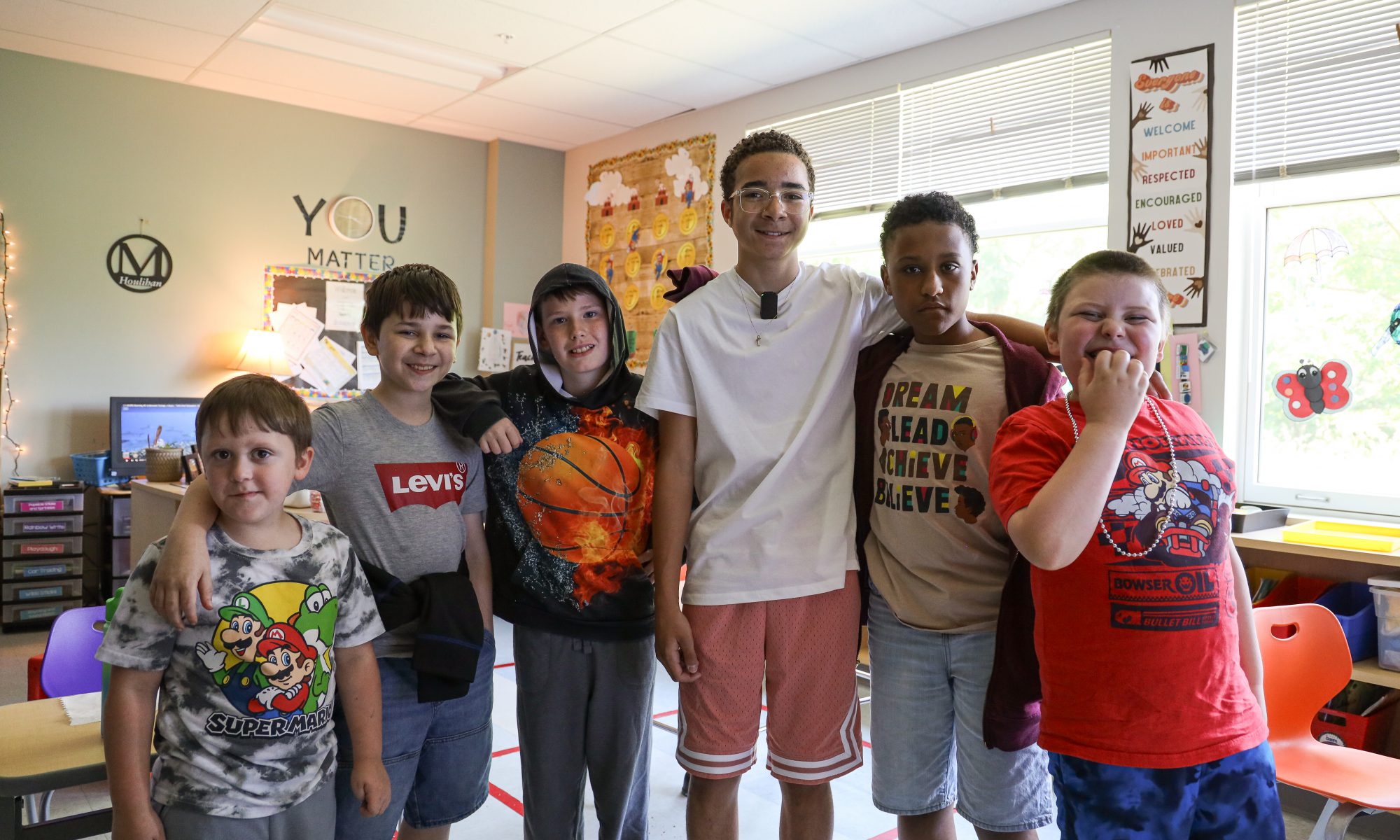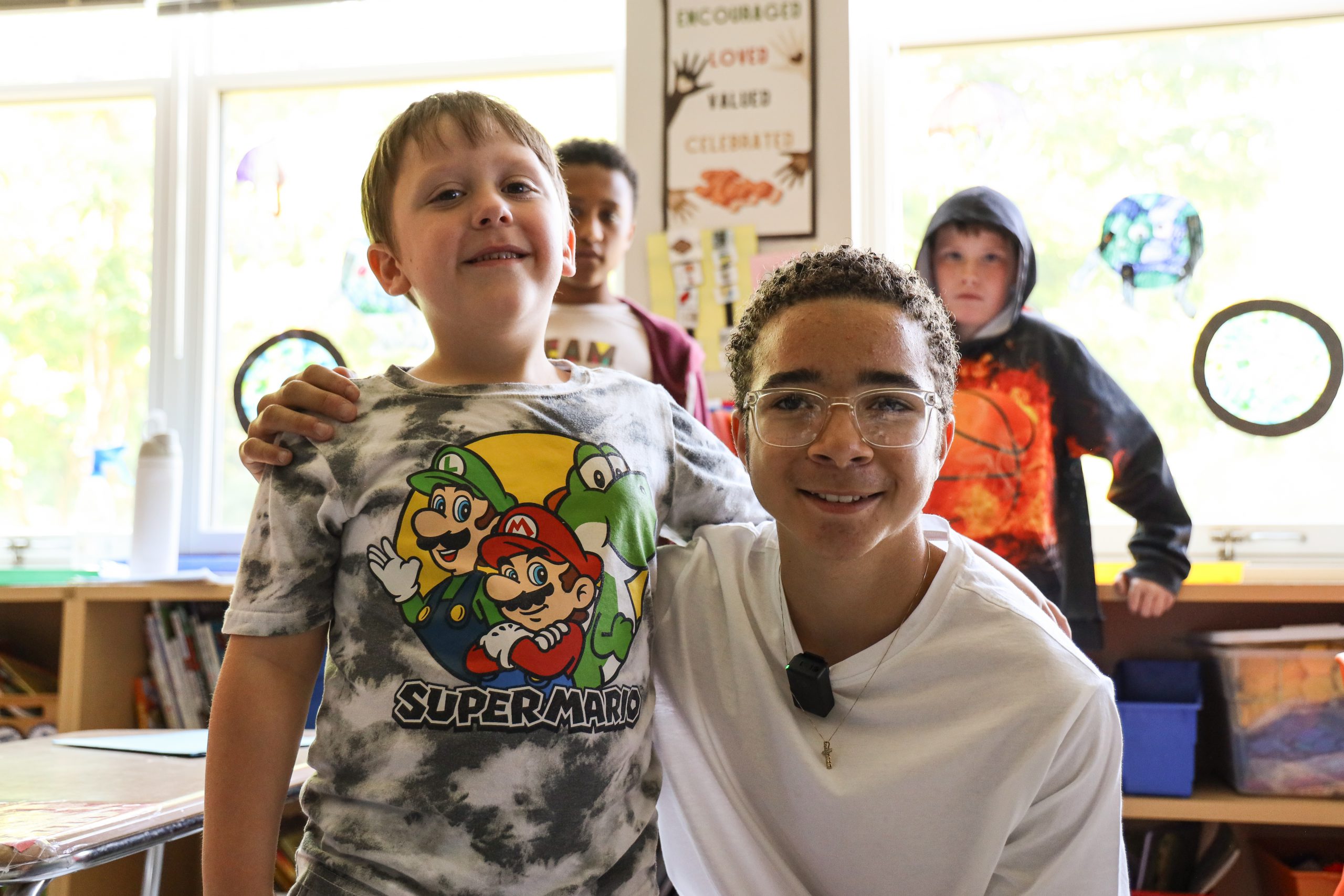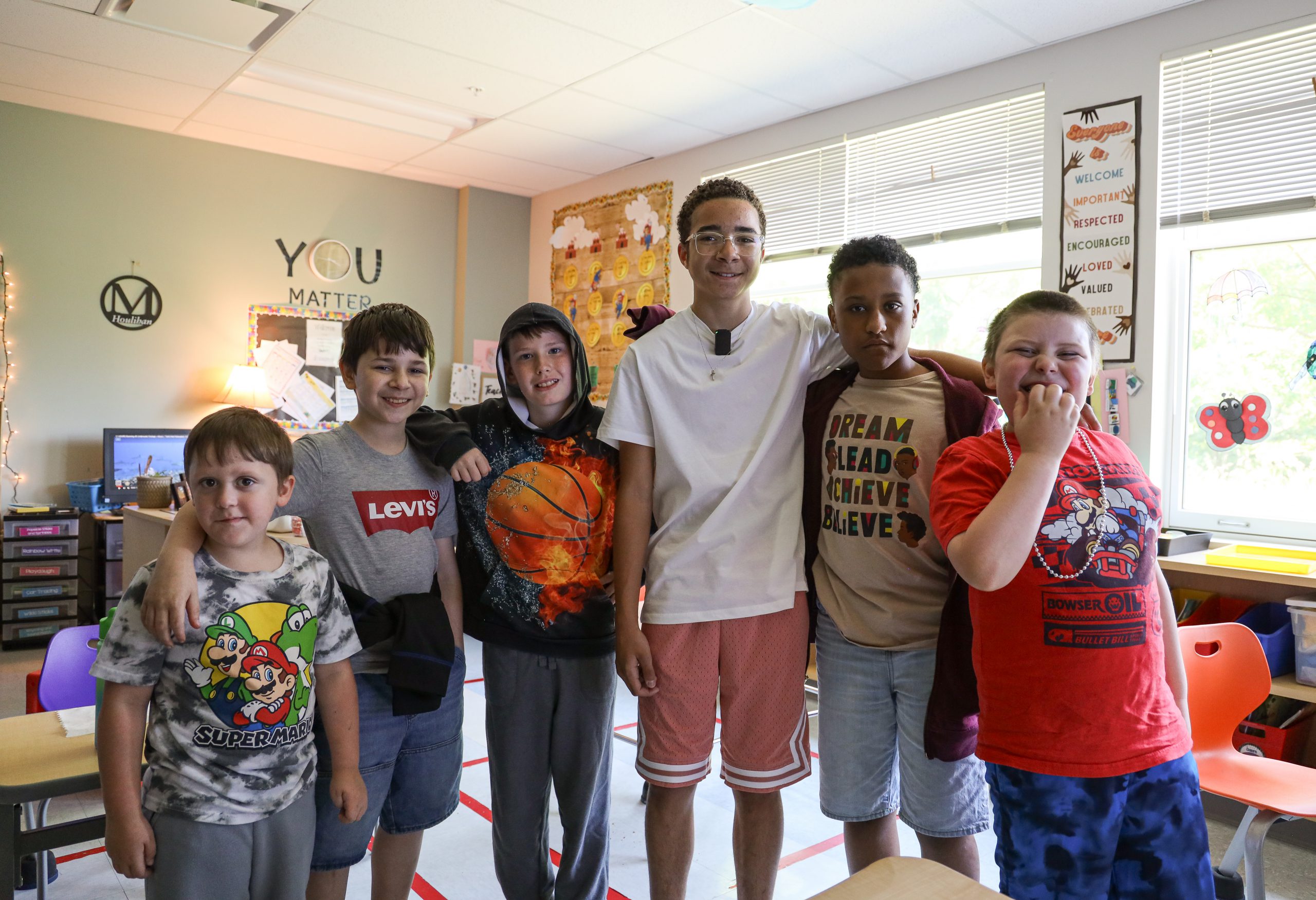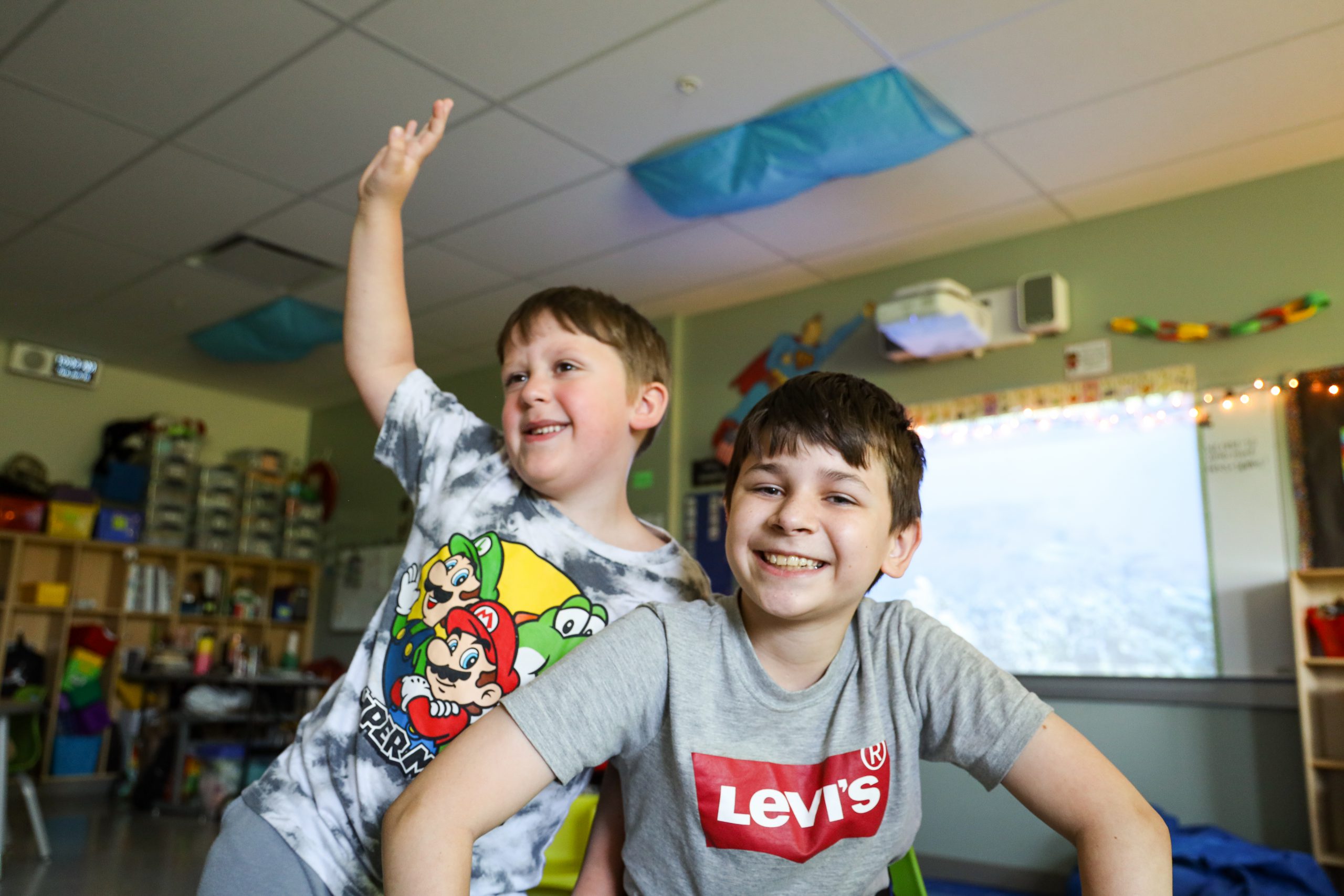Inclusion, connection and leadership are words that come to mind when describing the Big Buddy/Little Buddy program at Airline Drive Academy. Created to enhance school spirit, the Big Buddy/Little Buddy program pairs younger students with older students as mentors. The result: improved communication skills, positive self-image and stronger bonds.
“What made me want to be a Big Buddy is just being around the kids [that] makes you feel comfortable. When you like to work with kids, it’s just fun,” said Jeremiah, a Big Buddy at Airline Academy Drive. “My favorite part about being a Buddy is becoming a family with all the classrooms.”
Big Buddies and Little Buddies spend quality time by taking classes together, such as art, physical education and yoga. They also participate in cooking groups, hang out on the playground at Airline, do science experiments, and share their favorite toys.
“Giving the big buddies that sense of responsibility and those social interactions helps build their self-esteem and confidence. And then they can reverse that and be that positive role model for their little buddies,” said Curriculum and Evaluation Consultant Rebecca Dysard, who founded the program with Airline Assistant Principal Amanda McNeal.
“I used to be very shy and insecure and not the way I am now. I’ve seen myself grow–I’ve gotten funnier, less shy…I don’t know. I’ve just gotten better,” said Liam, a Big Buddy at Airline Drive Academy.
Students in grades six through eight can apply to the program in September and are paired with a Little Buddy for the remainder of the school year. Matches are chosen based on shared interests and student needs, said Barb Lounello, Airline Academy Principal. Strong bonds can develop over the course of years, which increases the chances of positive outcomes for students. Big Buddies who rejoin the program also provide valuable feedback during the reapplication process, including ideas for activities they can do with their Little Buddies the following school year.
Not only is the program achieving its intended outcome of fostering an environment of learning, fun and leadership, but it has also “helped provide a safe, caring, respectful and responsible community for everyone,” Dysard said. “The overall effect of the Big Buddy/Little Buddy program has just been inclusion for everyone. “Everyone feels like we’re a family here. Everyone has a place.”




